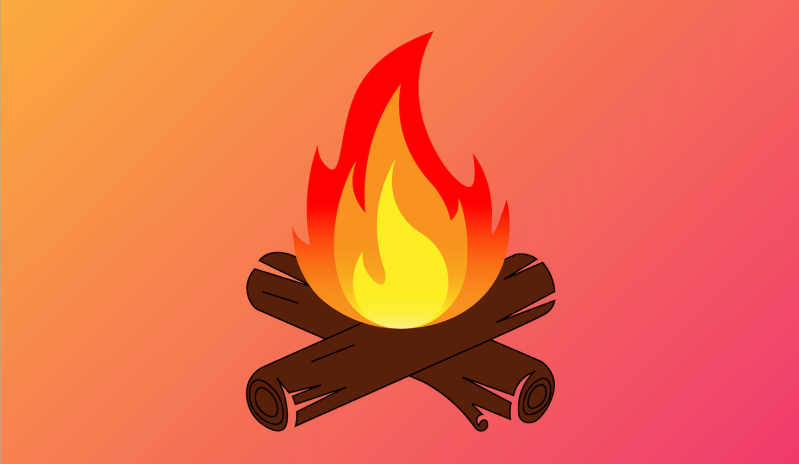A Stanford frosh has created an app that allows users to post public or anonymous confessions.
The app, Campfire, has already crossed 1,000 downloads in the first week after its release. While Campfire’s user base is primarily frosh, anyone with a Stanford email can sign up.
Inspired by the tradition of telling stories around a campfire, its creator, Sergio Charles ’23, designed it with the goal of allowing users to share their thoughts in a safe space.
“The idea is that it enables people to express themselves in a more authentic way because it gives them the power of anonymity, but at the same there’s also a social checks and balances ensuring that people don’t just post anything,” Charles said.
The app is an extension of the Facebook page Cardinal Confessions that Charles created earlier this year.
“In the first week of school I wasn’t feeling too good and I thought there should be a more centralized place to express yourself without having the stigma associated with social media and having to look your best,” Charles said.
The main inspiration to change platforms from Facebook — where the page already had over 1,000 likes — to an app was a lack of interaction, Charles said. On the Cardinal Confessions page, people were disincentivized to comment because they weren’t anonymous, he said, leading to the addition of anonymous commenting in Campfire.
“When you create a post the default is public because we try to foster an environment in which people express themselves but also still associate their identity with their post,” Charles said. “But at the same time we acknowledge that’s usually not the case so you can also post anonymously. It’s sort of this level of pseudo-anonymity where you can do both.”
Co-founder William Ellsworth ’23 called the app “hilarious.”
“I laugh out loud almost every time I open the app,” he said. “Even more than that, it’s a place where I can be honest about how I’m feeling without worrying about trying to manufacture a facade of perfection.”
Within the Campfire app, separate channels known as camps allow for different levels of privacy. Lauren Howe ’23, an early user of the app, liked the ability to choose the range of her sphere.
“I think one really cool thing is that it has groups,” Howe said. “Because of that, you have the ability to say something just to your dorm in your channel but if it grew to something campus-wide you can post something if you want more people to see it.”
Howe also appreciated what she called the “best of both worlds” — security and anonymity.
“I haven’t seen any [offensive posts] because you can be banned from the app and lose a lot of privileges, and because of that there’s protections,” she said.
One of Campfire’s features to tackle hate speech is the so-called s’more score. Each post can be upvoted or downvoted to raise or lower its s’more score. If a certain post receives enough downvotes, it will automatically get deleted. A low s’more score can also affect a user’s ability to post and comment anonymously.
“If your s’more score is below a certain threshold you can’t post anonymously,” Charles said. “By posting anonymously you agree to these terms that you shouldn’t say something that’s deemed inappropriate.”
Charles says that these safety features help distinguish the app from other anonymous posting platform predecessors. For example, Yik Yak was created by college students in 2013 to be a localized anonymous messaging app. but it soon faced complaints over cyber bullying, discriminatory speech and threats of violence.
“Yik Yak’s main problem was that they enabled a lot of cyberbullying because they had no system of disabling anonymous posting,” Charles said. “With Campfire you have actual public profiles that display your contribution, and it’s supposed to be more of a network than Yik Yak, where there’s a disconnect because you just see a bunch of anonymous posts and there’s no association with a real person.”
One of Howe’s concerns with Campfire was the anonymous direct messaging feature.
“I think in terms of concern, anonymous direct messaging is a little weird,” Howe said.
To counter this, anonymous messages must be chosen from a menu of “filler,” pre-set messages — these include “What’s your secret fetish?” and “Can you be a little quieter, please?”, according to Campfire’s app store description — and users must reveal identities to send custom messages.
Charles said he does not plan to “coerce” people to sign up to grow the app because “it has to be natural.”
“It’s early to make a call if it will become anything but I hope that in the smallest capacity it helps at least one person,” Charles said.This article
This article has been corrected to reflect that Ellsworth is a co-founder of the app, not just a user. The Daily regrets this error .
Contact Ujwal Srivastava at ujwal ‘at’ stanford.edu.
